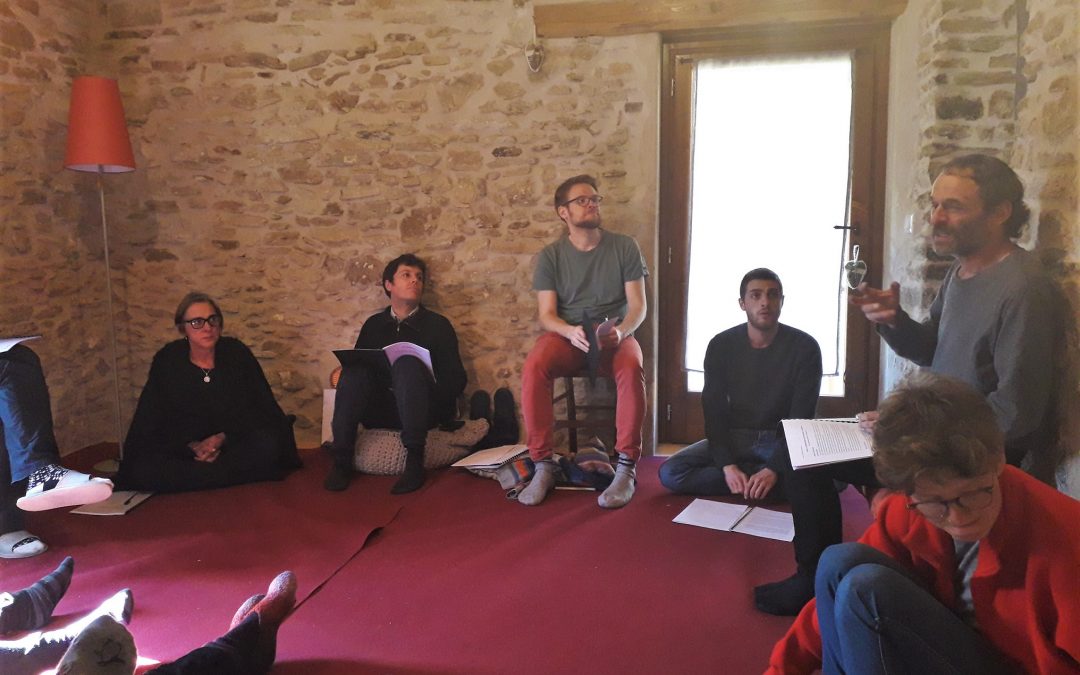If had to define Deep Philosophy in a single sentence, I would say: In Deep Philosophy we reflect on basic life-issues from our inner depth, in togetherness with our companions and with historical philosophical texts.
Notice several points here:
First, this formulation makes it clear that Deep Philosophy is a form of philosophy. That is because it explores fundamental issues of life, just like the numerous philosophers throughout the history of philosophy, who likewise explored our most fundamental understanding of our life and reality: Plato, Aristotle, Epicurus, Spinoza, Rousseau, Kant, Nietzsche, to mention only a few.
Second, this formulation also explains that Deep Philosophy emphasizes a special kind of thinking, one that involves silent listening inwardly. Philosophers throughout history used a variety of ways of thinking: discursive thinking and analyzing (for example,
Aristotle), introspection (Husserl), intuition (Bergson), poetic thinking (Novalis), meditation (Plotinus), and so on. Deep Philosophy focuses on a more silent and semi-meditative kind of thinking, or what we call contemplation.
Third, Deep Philosophy is usually (although not always) a group activity. It is practiced in small groups, usually of 5-15 people who meet online or face to face for sessions or about one to two hours. However, unlike ordinary discussion groups, participants do not argue, judge, or express their opinions. Rather, they think in togetherness, in other words they resonate with each other like musicians in a jazz session.
Fourth, this formulation tells us that in Deep Philosophy sessions we always relate to ideas of previous historical thinkers. After all, philosophy is a long tradition, a historical discourse, where every thinker always relates to previous thinkers. Philosophizing never starts from zero. This is why we use a philosophical text – not as an authority to follow, but as material to work with, to respond to in our personal way, thus enriching our personal thinking.
We may add a fifth point here, regarding the purpose of this activity. What do we hope to achieve by practicing it?
The answer is that through Deep Philosophy, we want to get in touch with the foundation of our existence, with the basic meaning that shape our reality, or what we call “voices of reality.” We also want to cultivate within us an inner dimension that would enable us to be open ourselves to that deeper level of reality. We call this inner dimension within us “inner depth.” In this respect we are close in spirit to philosophers such as the Stoics, the Neo-Platonists, the German Romantics, and the American Transcendentalists, who likewise worked to awaken a dormant inner dimension which is connect to fundamental reality. Thus, for us, unlike in mainstream modern philosophy, philosophizing is much more than mere intellectual interest.

